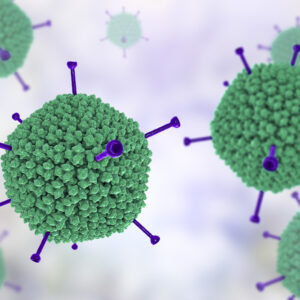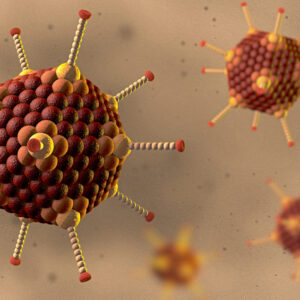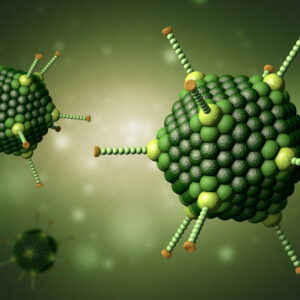MOUSE ANTI-ADENOVIRUS HEXON ANTIBODY (A93)
Mouse monoclonal antibody specific for Adenovirus (clone A93) recognizes the hexon protein of Adenovirus. Hexon protein is the largest and most abundant structural protein in the adenovirus capsid. No cross reactivity with Influenza type A, Influenza type B, Respiratory Syncytial Virus, Rotavirus, Astrovirus, Norovirus GI, Norovirus GII, Enterovirus. Antibody pairs with MAB12508 and MAB12510.
PRODUCT DETAILS – MOUSE ANTI-ADENOVIRUS HEXON ANTIBODY (A93)
- Mouse monoclonal adenovirus antibody (clone A93) recognizes Hexon.
- Clone A93 has been purified in a multi-step procedure.
- Antibody pairs with MAB12508 and MAB12510. Suitable for use in the development of immunoassays.
BACKGROUND
Human Adenoviruses (HAdV) are non-enveloped, non-segmented double stranded DNA viruses, which belong to the genus Mastadenovirus within the Adenoviridae family of viruses. Human Adenoviruses have been further classified into seven species groups A- G. Since the discovery of adenovirus in human adenoid tissue in 1953, by Wallace Rowe and colleagues, more than 50 serotypes of HAdV and 70 genotypes have been identified (Cook, J).
Human adenoviruses are globally widespread and ubiquitous in the environment. HAdV can persist in the environment and are resistant to most household disinfectants. Transmission of HAdV occurs primarily via the faecal-oral route, with contaminated water and food being the primary source of infection. HAdV may also be spread through contact with contaminated surfaces and through aerosol droplets from an infected individual.
Human adenoviruses commonly cause respiratory disease but some HAdV serotypes cause gastrointestinal disease, conjunctivitis and cystitis. The clinical disease caused by HAdV infection varies depending on the HAdV type. In immunocompromised patients, HAdV infection can cause severe clinical symptoms that may lead to respiratory failure, neurological disease and death (CDC).
Currently there is no specific treatment for HAdV infection, which is mild and self-limiting in most cases, and licensed vaccines are not available for prophylactic treatment of the general public.
REFERENCES
- Cook J, Radke J. (2017). Mechanisms of pathogenesis of emerging adenoviruses. F1000Res. Jan 30;6:90. PMID: 28184296
- Centres for Disease Control and Prevention: Adenoviruses.



